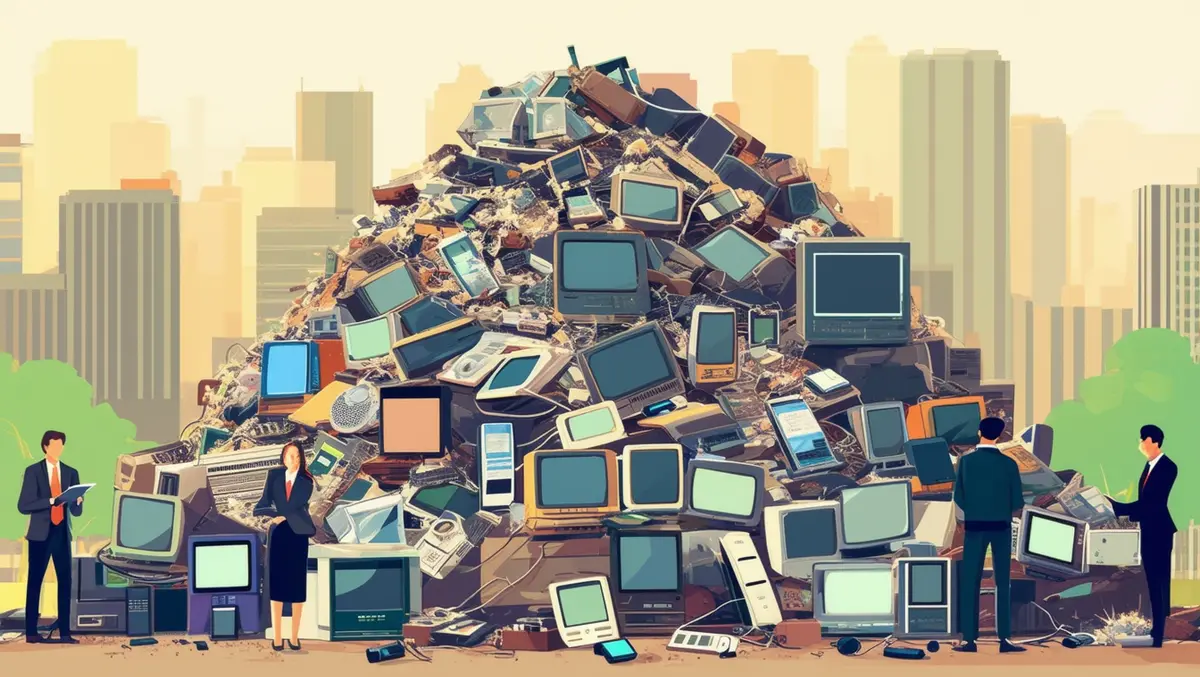
Study reveals gaps in ASX firms' e-waste reporting
Research from Australia's largest e-waste processor has revealed significant gaps in how e-waste is reported by the country's leading companies.
The study by Sircel found that merely 19% of the top 200 companies listed on the Australian Securities Exchange (ASX) include e-waste in their sustainability reports. This comes despite e-waste being identified as the planet's fastest-growing waste stream.
Australians generate an average of 22 kg of e-waste per person, more than double the global average, according to the Department of Climate Change, Energy, the Environment and Water. By 2030, the nation's total e-waste is expected to reach 657,000 tonnes, with much of it shipped overseas.
Sircel's report "Plugging Australia's E-waste Gap" details how most ASX companies discuss sustainability and Scope 3 emissions, but frequently exclude e-waste from these conversations. The report found 76% of ASX 200 companies mention Scope 3 emissions in their sustainability reports, yet only one company noted the relationship between these emissions and e-waste.
Moreover, while 43% of the companies supported the idea of a circular economy, only 12% explored how e-waste fits into this framework. Of the firms that discussed recycling, only 15% included e-waste in their definition of the practice.
Sircel's CEO, Anthony Karam, remarked, "Australian businesses are looking to scale up their sustainability outcomes in a tangible way that delivers big on climate action. However, our research has highlighted a clear gap in how e-waste is being reported compared to other waste streams.
Some 44% of corporate sustainability reports mentioned waste streams, but a vast majority failed to include e-waste as one of these streams. That tells us managing e-waste is not yet a boardroom priority in Australia - but as the world's fastest growing waste stream - it should be."
Beyond the corporate sector, the study also highlights a lack of awareness among Australians regarding e-waste. Nearly half of the survey's 1,000 Australian participants were unaware of what happens to their e-waste. Despite this, 70% of consumers prefer their e-waste to be recycled domestically, 55% hope for the recovery of precious metals, and 48% express a desire for less e-waste to be exported overseas.
Karam addresses this educational gap by stating, "With the average Australian generating around 20 kg of e-waste each year, we are one of the highest contributors of e-waste per capita in the world. We knew the knowledge gap was significant, and that community and business education would be an essential part of our remit – that's why with this report we decided to quantify and qualify the gap this International E-waste Day."
He further commented, "To continue to ignore the valuable commodities locked up in e-waste – instead sending this perceived 'rubbish' to landfill or worse, offshore, is a cheaper and more convenient option, but the benefits are short-term, and it will only snowball. As a country that prides itself on its abundance of natural resources, now is the time to secure a future powered by a circular economy."
This research involved a survey conducted in September 2024 with 1,000 Australian device users and consumers using an independent research platform, Pollfish. Additionally, Sircel analysed the most recent sustainability reports published by ASX listed companies between 2020 and 2024.


